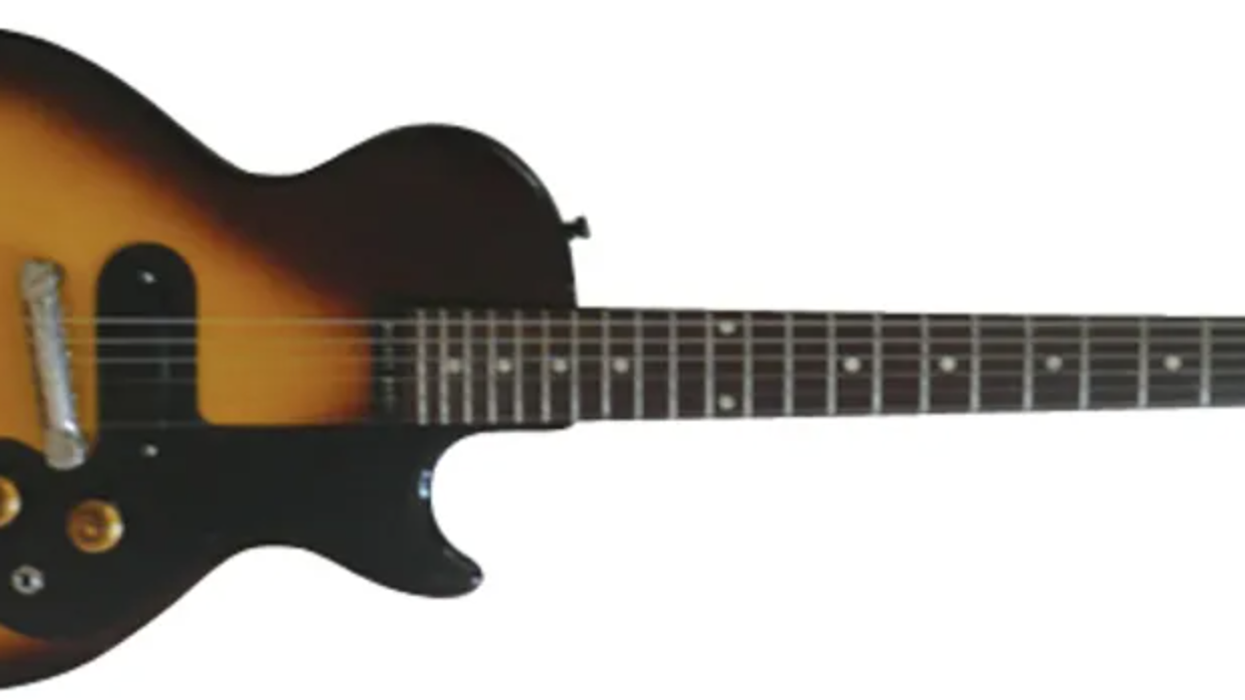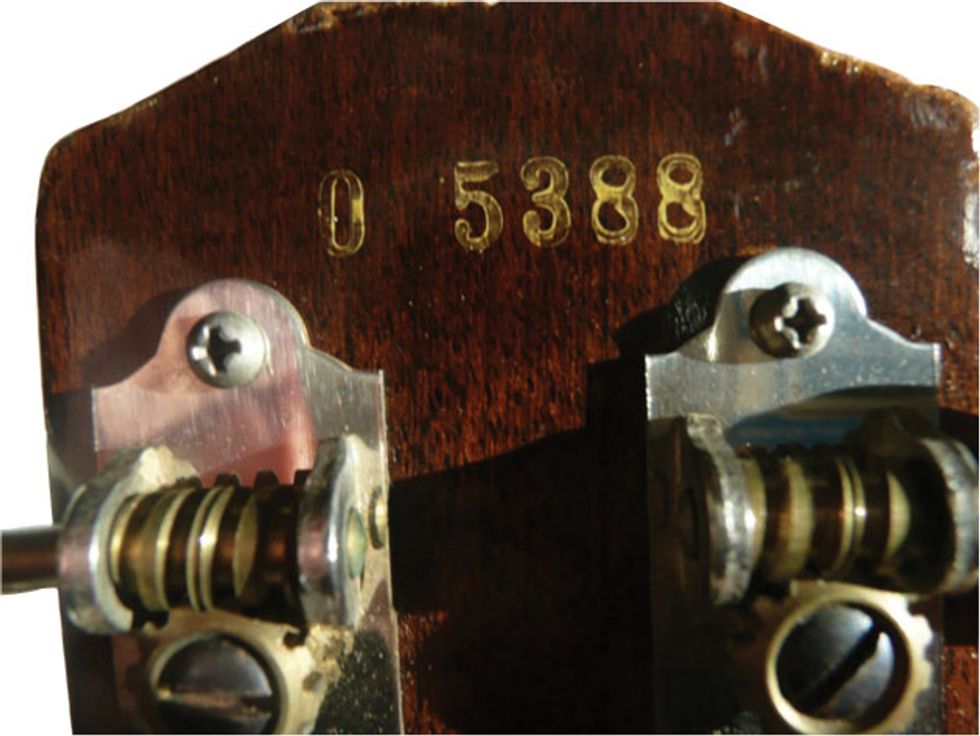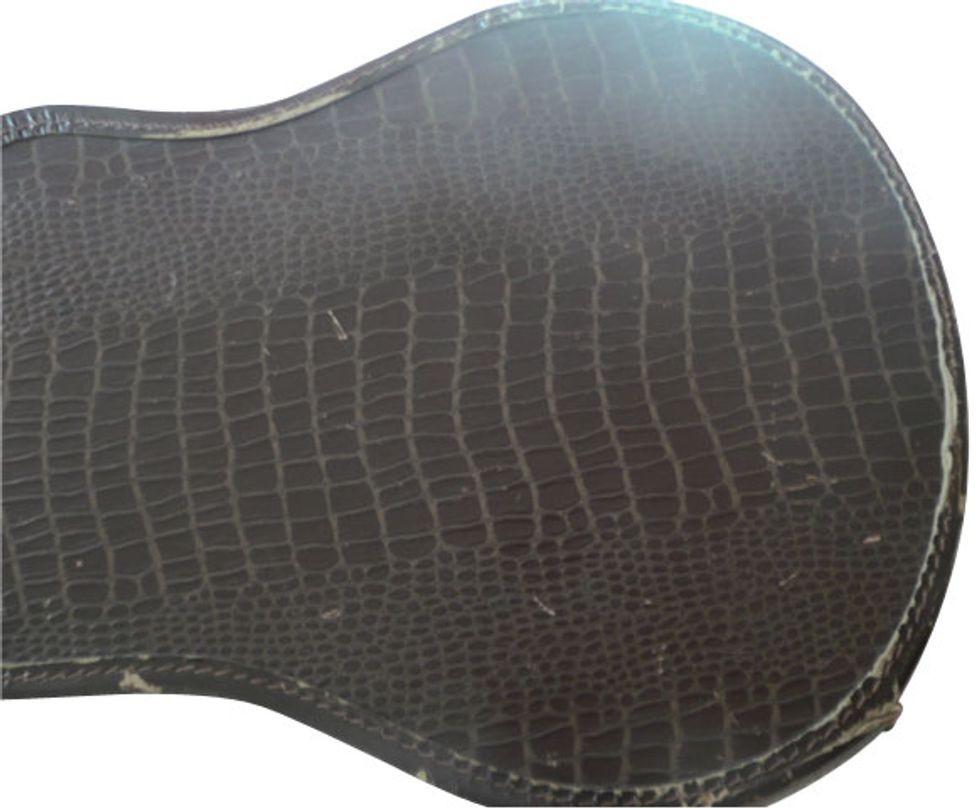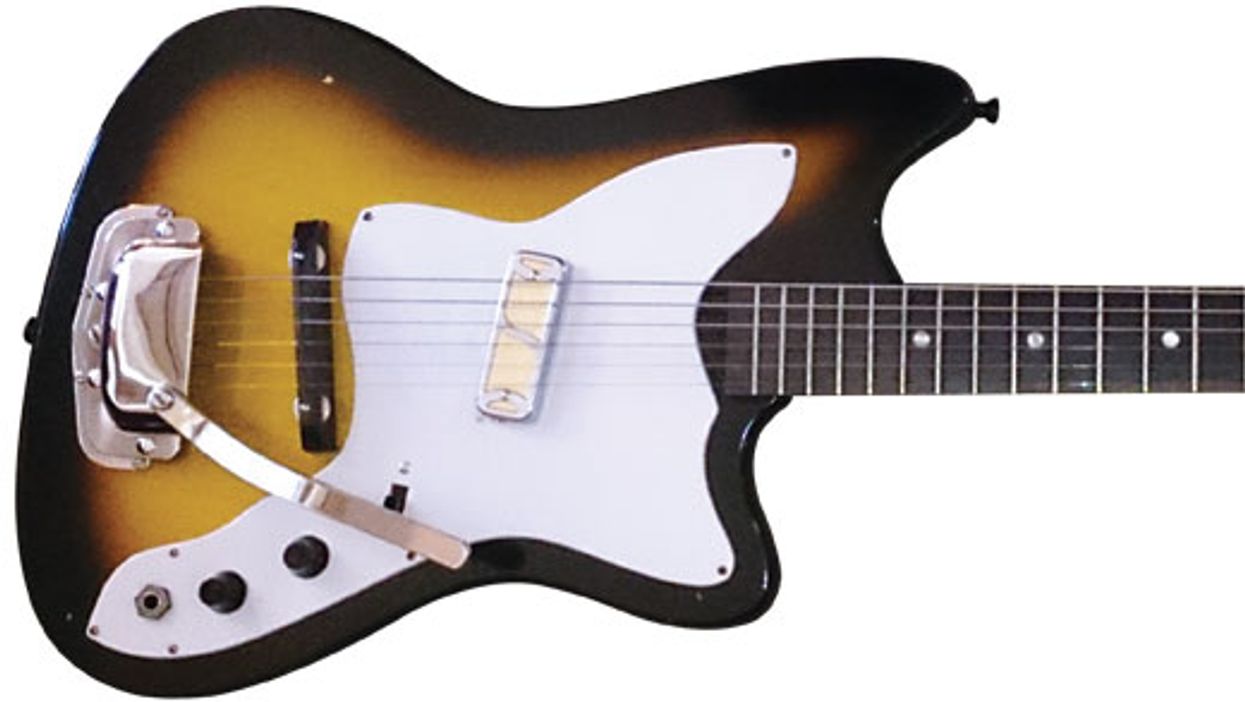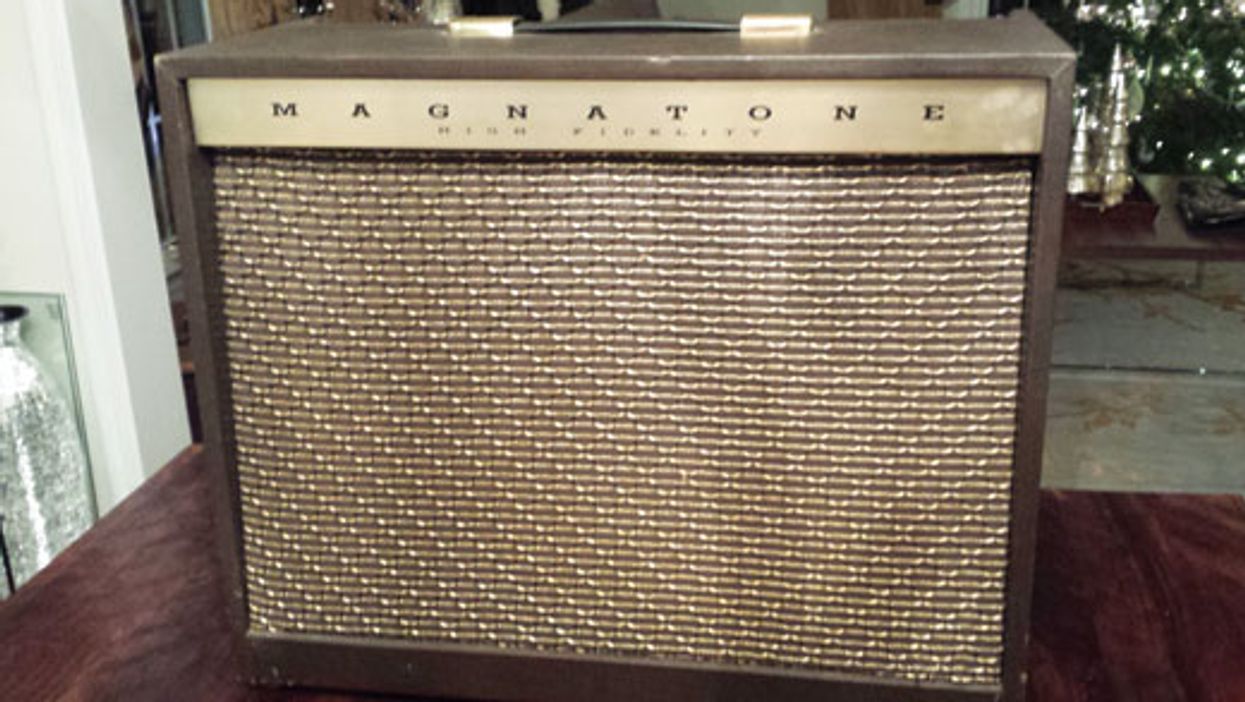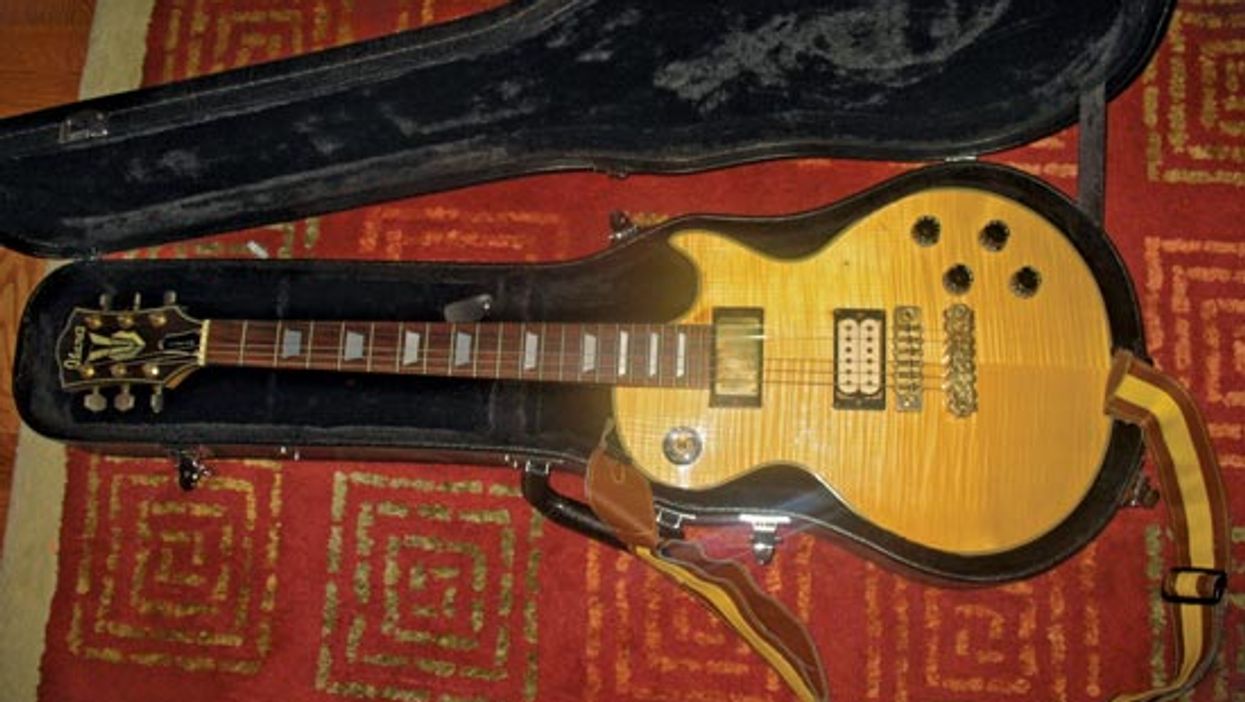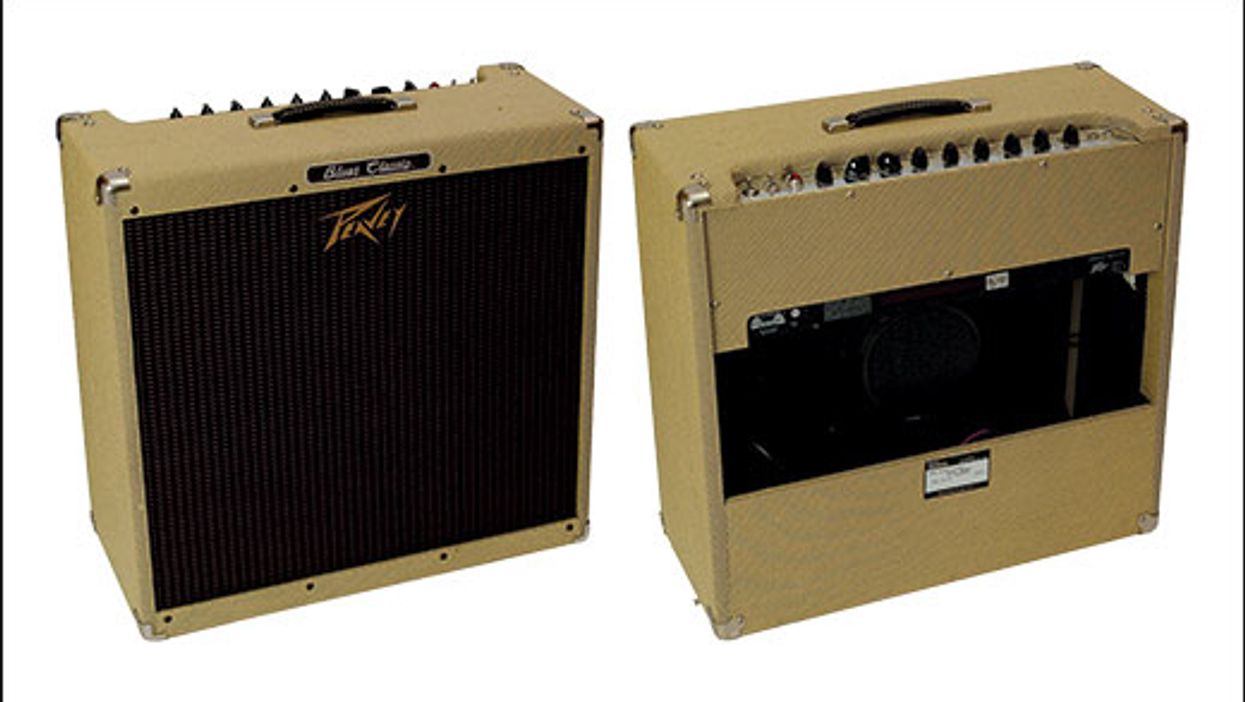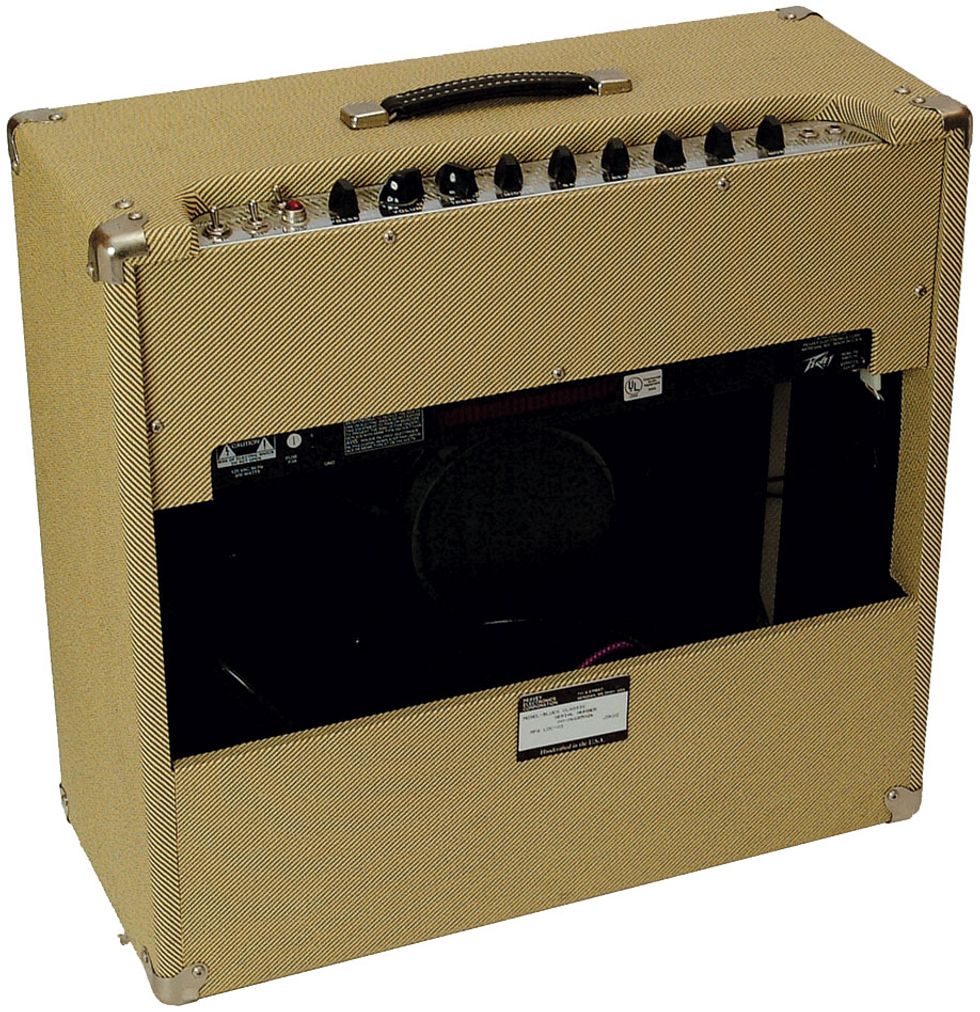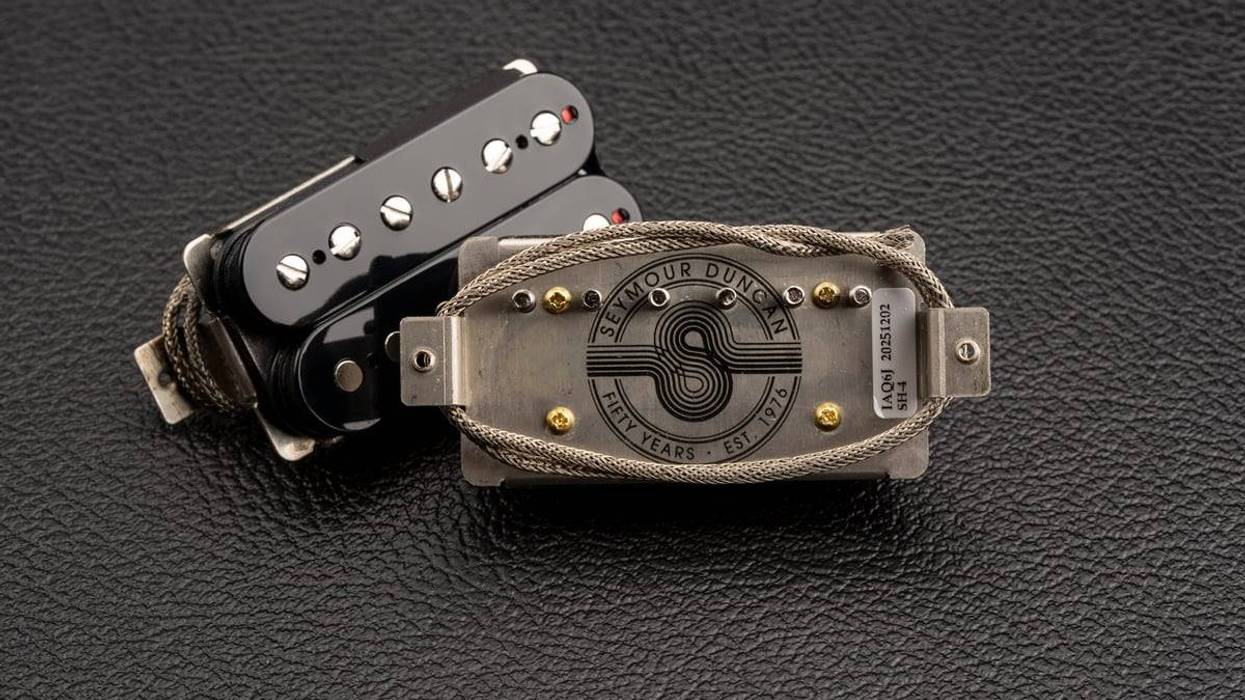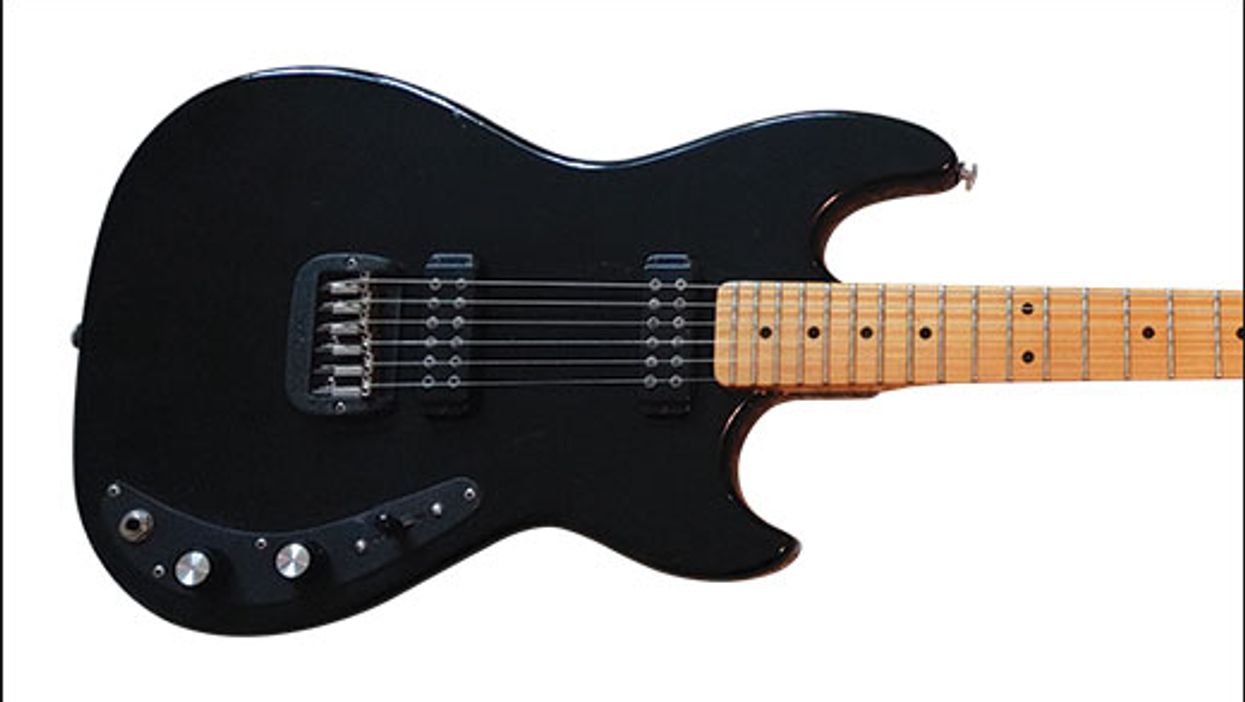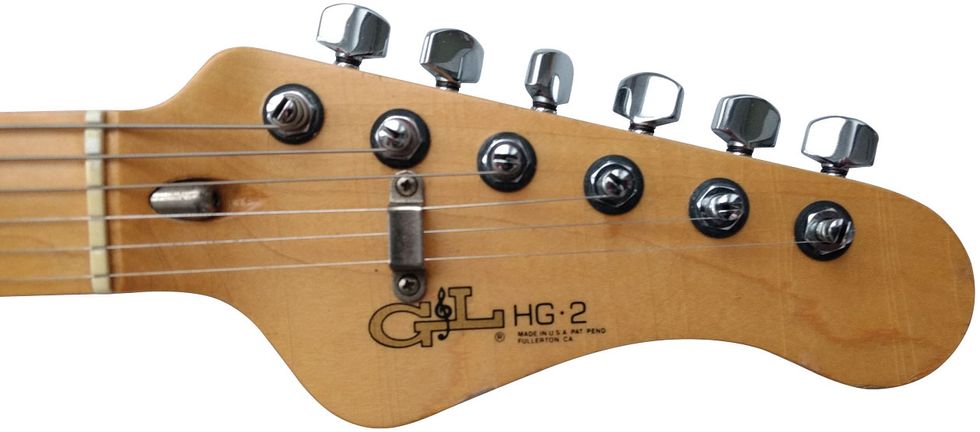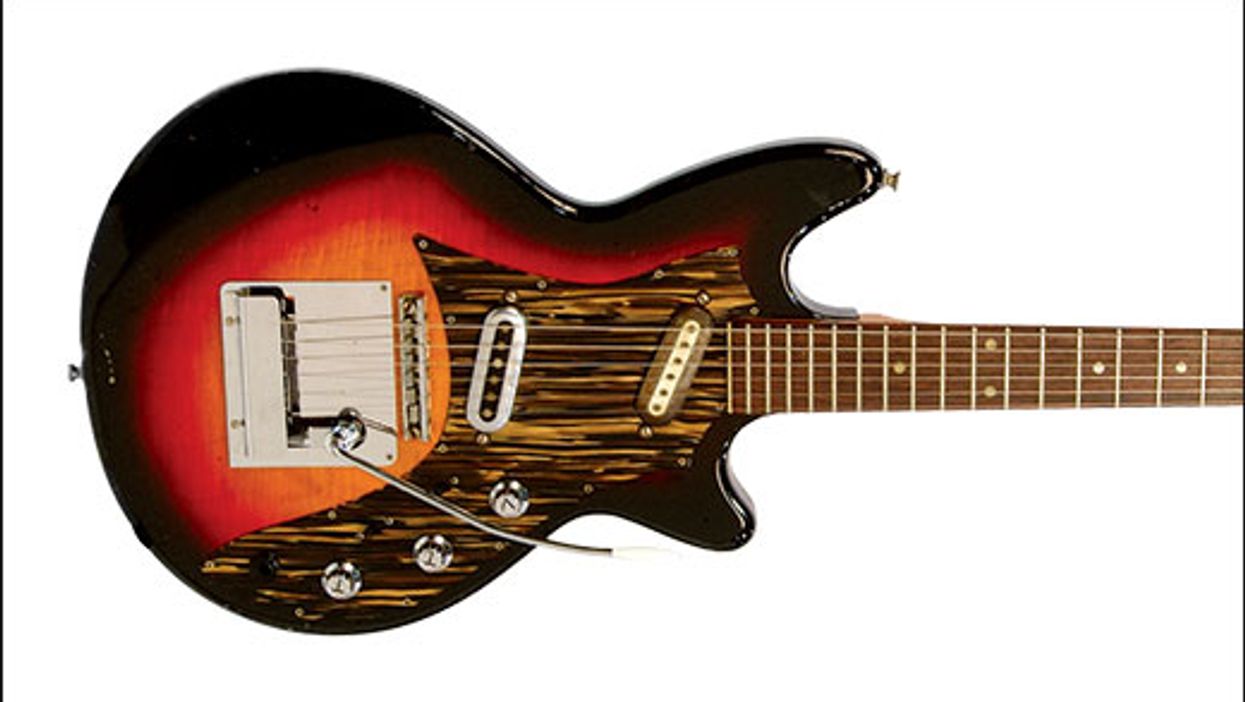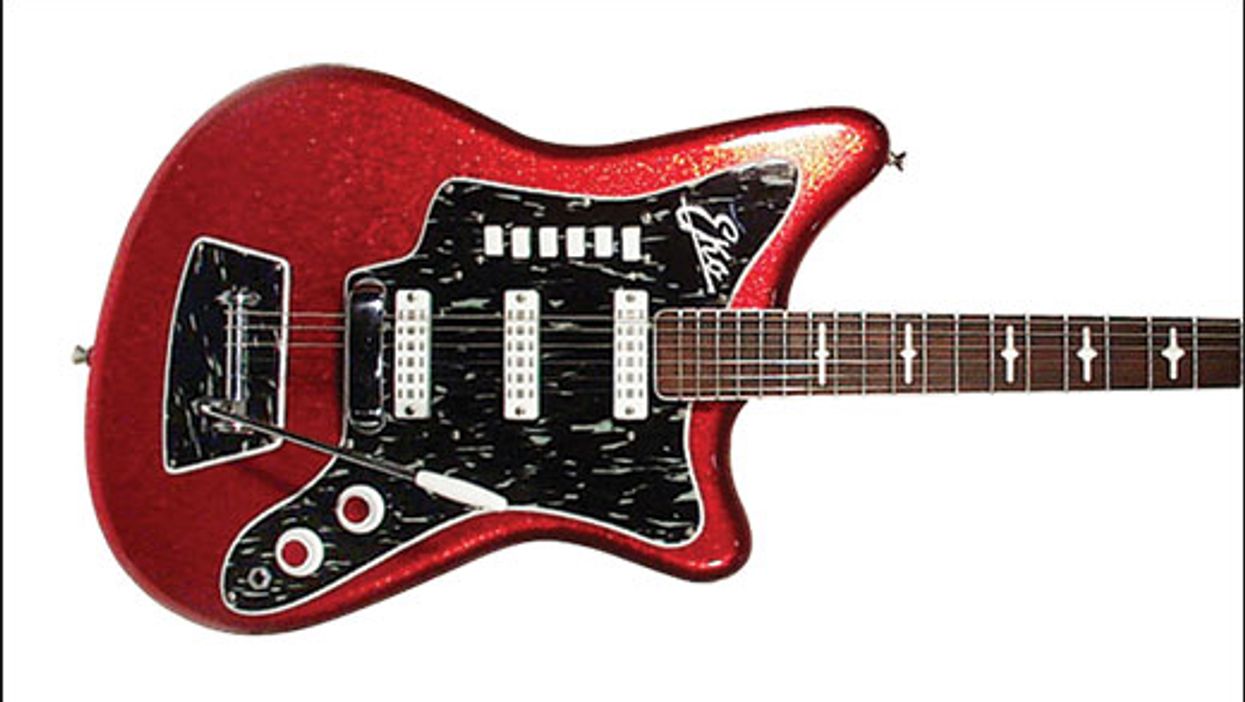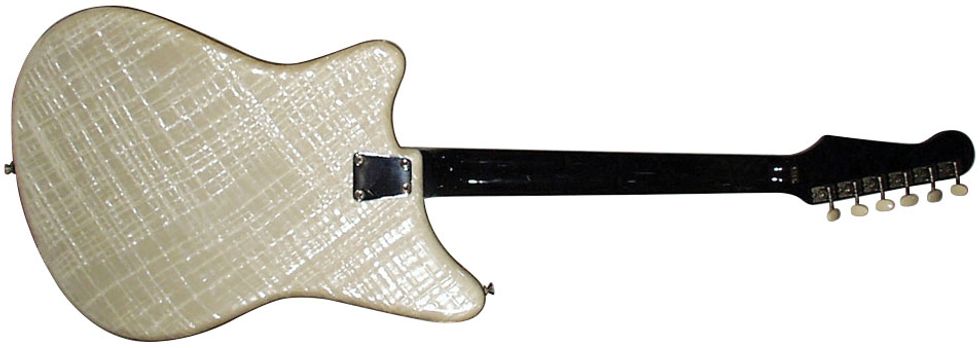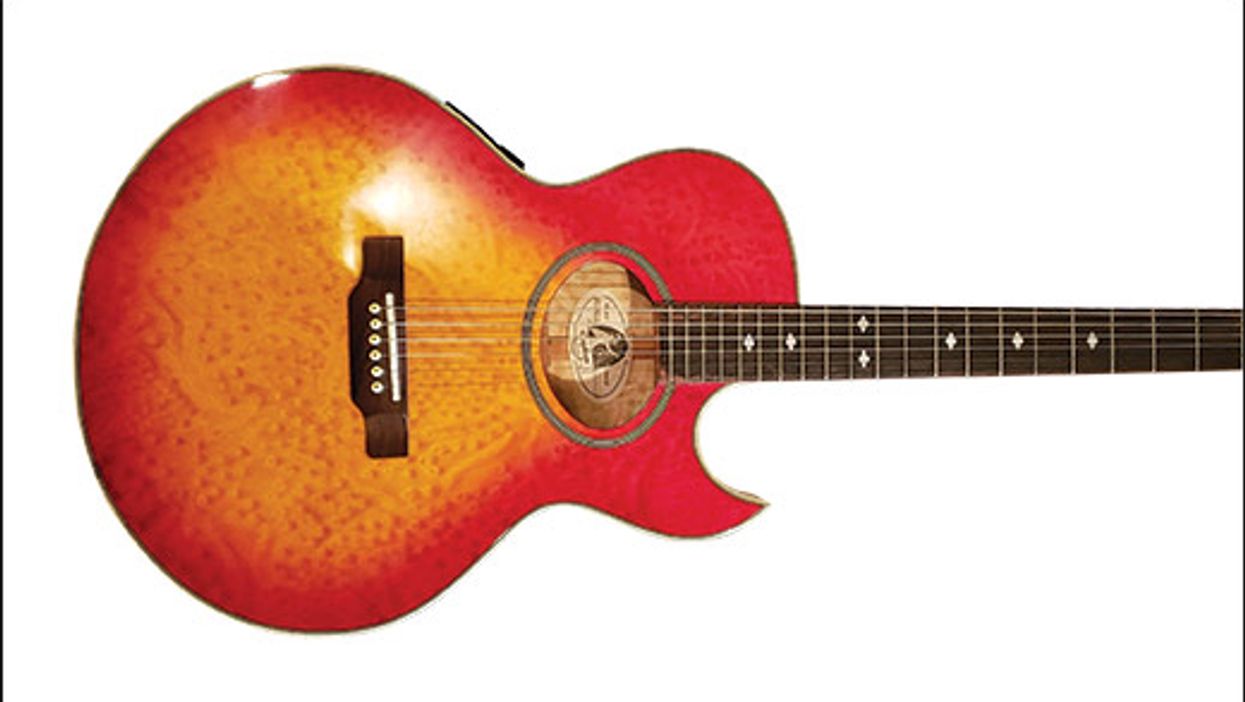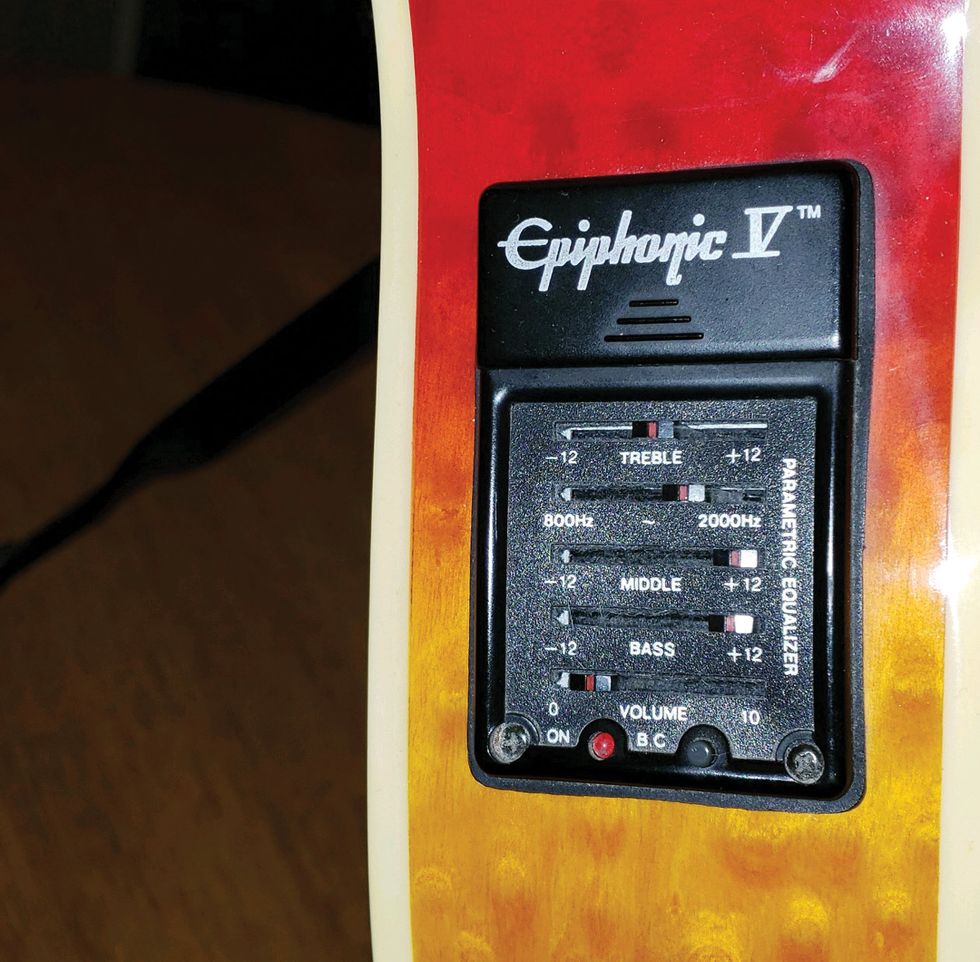Hello Zach,
I'm hoping you can provide me some information about my Gibson Melody Maker guitar. I'm 72 and retired now, and played it some when I was very young. I believe it's somewhere around a 1960s model, but I'm not sure. It's in good condition for its age, and everything works except the tone knob. The case is a little rough, but still very usable. A local music store offered me $450, but I don't know if this is a fair price or not. A ballpark value and any other information about this guitar would be appreciated.
Thank you,
Frank in Proctor, Minnesota
Hi Frank,
Cool guitar! Let me start by saying that it's a smart move to find out what your guitar is really worth before you consider selling it. While money talks and a lot of guitar owners might be quick to action, it's important to be informed about the assets you have so you can make the best financial decision.
Gibson's Melody Maker was the ultimate guitar for beginners in the late 1950s and early 1960s. Cheap to produce and popular with the emerging rock 'n' roll scene, Gibson made thousands of them in the 1960s. The Melody Maker was just one of many guitars released under Ted McCarty's term as president and visionary of Gibson between 1948 and 1966.
Up until 1961, Gibson dated solidbodies by utilizing the first number of the serial number to indicate the last digit of the year built, confirming that this Melody Maker is a 1960.
A quick glance at the Melody Maker shows the similarity in design to the timeless Les Paul. Gibson first introduced the solidbody Les Paul guitar in 1952, and it quickly became very popular. It was expensive, however, and plans were already underway by the end of 1953 to produce a more affordable model called the Les Paul Junior.
By the late 1950s, the Les Paul Junior was outselling all other Les Paul models combined, and Gibson took note of how well Fender's budget-model Musicmaster was doing. In 1959, Gibson introduced the Melody Maker sans any mention of the Les Paul name on the guitar.
The Melody Maker was essentially a budget version of the Les Paul Junior with a thinner body, a narrow headstock without the wings, and a thinner pickup with no pole pieces. A 3/4-sized Melody Maker debuted the same year as well. The affordable Melody Maker became Gibson's best-selling solidbody guitar by the mid-1960s. It also followed design changes similar to the Les Paul Junior with the introduction of a rounded double-cutaway body in 1961, and then an SG-style body in 1963. The Melody Maker was produced through 1970 before it was rebranded as the SG-100/SG-200/SG-250 series.
Your guitar is a 1960 Melody Maker. We can tell this by the single-cutaway body that was only produced between 1959 and 1961, and the “0 53XX" serial number. Until 1961, Gibson solidbodies were dated with the first number of the serial number corresponding to the last digit of the year built: The “0" represents 1960. Your Melody Maker features a mahogany body and neck, rosewood fretboard, a single pickup, and knobs for volume and tone. It also appears that you have the original alligator-skin-style case. It's not a high-end case, but original is the key word here.
It's not a high-end case nor is it in great shape, but the key here is that it's original.
Based on your guitar's condition—which appears to be 90 percent (excellent)—it's currently worth between $1,300 and $1,650. Not bad for a guitar that was originally designed as a budget model, and certainly higher than the amount you were offered. I'd suggest getting the tone knob fixed before you sell the guitar. More than likely, the potentiometer is bad and needs replacing, but that's an inexpensive repair. Then you'll have a guitar with no issues—much easier to sell for what you deserve to get out of it.
The low offer on your Melody Maker shows how important it is to do your research when buying or selling a guitar, especially if it's something that's been sitting in a closet for several years and may have appreciated in value. Don't let someone try to convince you that your treasure is actually trash.
It's always fun when a guitar ends up being worth more than you thought, making it a true gem!


